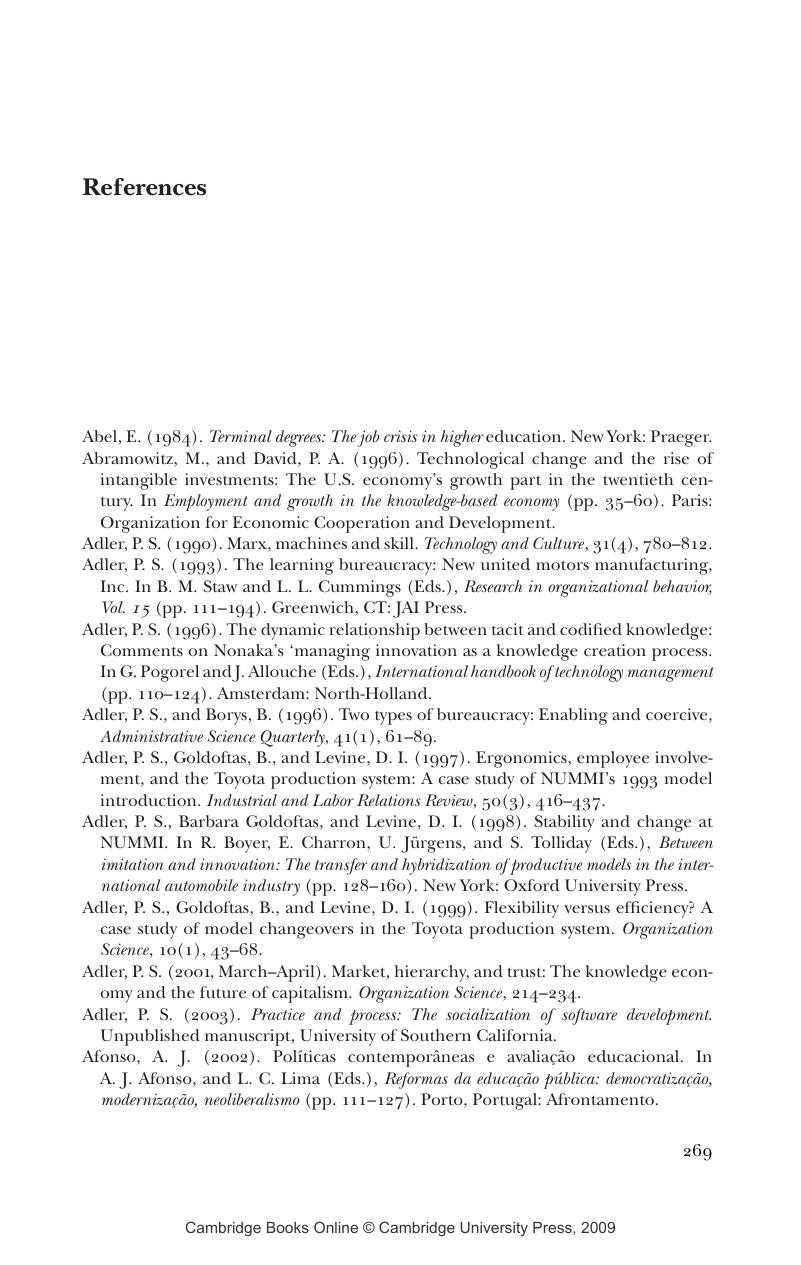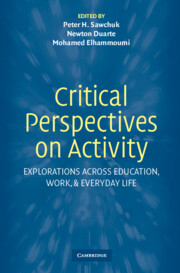Book contents
References
Published online by Cambridge University Press: 10 December 2009
Summary

- Type
- Chapter
- Information
- Critical Perspectives on ActivityExplorations Across Education, Work, and Everyday Life, pp. 269 - 292Publisher: Cambridge University PressPrint publication year: 2006



